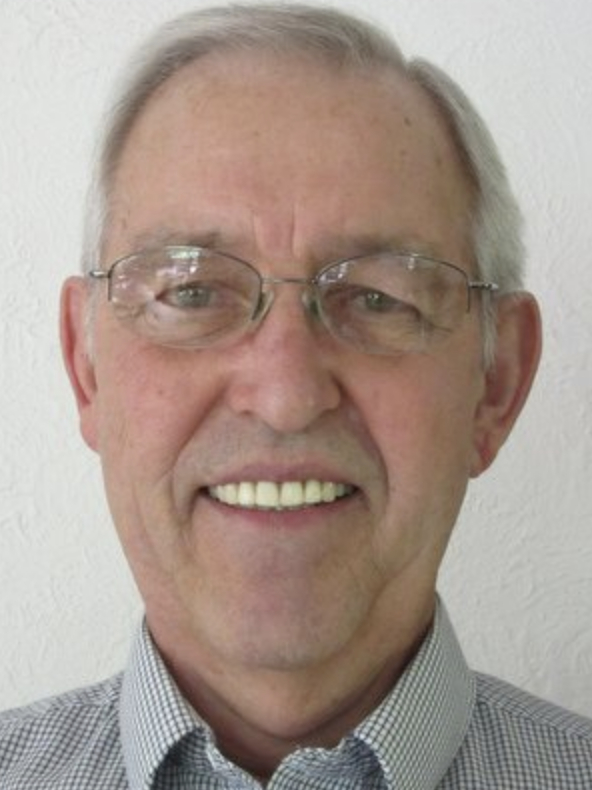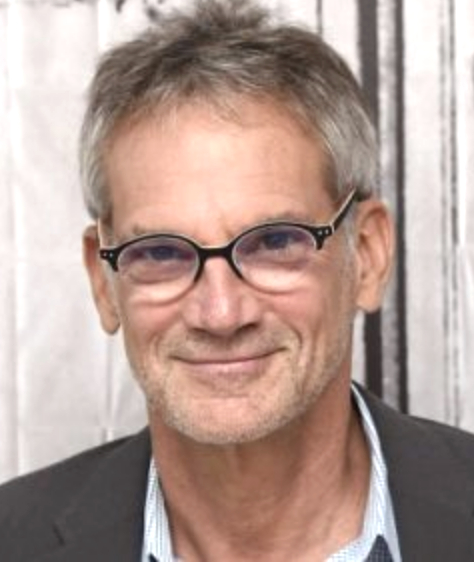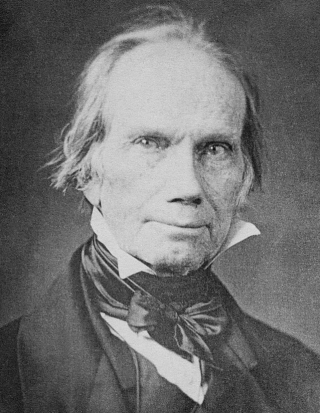April 12
Henry “Hank” Zumach

On this date in 1942, freethought activist Henry Herman “Hank” Zumach was born in La Crosse, Wisconsin, to Henry P. Zumach and Ann Katherine (Roraff) Zumach. With only fourth grade and sixth grade educations, both parents managed to attain lower level management positions. His mother was a practicing Catholic and his father was agnostic. Zumach grew up in the La Crosse area and attended Catholic schools for five years, starting in the fourth grade. (Due to his high IQ scores, he was allowed to skip fifth grade.) His parents allowed him to attend public high school after he decided that he could not believe the parochial school’s religious teachings.
Married and with two children, in 1965 he graduated from the University of Wisconsin-La Crosse with majors in psychology and business administration. His working career included human resources management for two large industrial companies, then teaching industrial safety laws, then starting and owning a residential roofing company. He retired in 1997. Zumach served in the U.S. Marine Corps Reserves from 1959 to 1965.
While he’d long been supportive of state-church separation and his doubts about religion started when he was about 12, it was after he retired that Zumach decided to become more involved when he saw a news story in the La Crosse Tribune about a local couple helping the Freedom From Religion Foundation sue the city for allowing a Ten Commandments monument in a city park. The husband had died and his wife, Sue Mercier, felt unable to continue as the sole plaintiff, so Zumach started making phone calls and convinced 21 others to join the suit. “I accepted the role of spokesperson for the plaintiffs and the lawsuit became the largest Tribune story two years in a row.”
While U.S. District Judge Barbara Crabb ruled in favor of the plaintiffs in 2003, despite the city’s sale of the small piece of land containing the monument to a private fraternal group, she was overturned in 2005 by an appeals court. The court, however, did not dispute the part of Crabb’s ruling that display or ownership of the Ten Commandments by the city was unconstitutional. A dissenting appellate judge called the land sale a “sham” bordering on “fraud.”
Zumach co-founded the La Crosse Area Freethought Society in 2008, eventually arranging for members to write monthly columns on secular topics for the La Crosse Tribune, which published them for six years. He retired as its president in 2016. In 2015, working with the American Humanist Association, he established the Henry Zumach Award for Freedom From Fundamentalist Religion to recognize individuals and groups that have taken a stand against religious intolerance and bigotry.
The first recipient was the French satire magazine Charlie Hebdo that was attacked by Muslim extremists for publishing cartoons of the prophet Muhammad. The Freedom From Religion Foundation, in consultation with the benefactor, now oversees and administers the annual award (recipients here). It was instituted at $10,000 but was later set at 5 percent of the endowment. By 2022 the award had grown to $35,000.
Zumach was the recipient of an FFRF special award in 2016 as a Freethought Extraordinaire. He lives in La Crosse with his longtime domestic partner, Betty Hammond, and has a son, Todd, and a daughter, Kelly.
“I gradually came to realize that many of the things I was taught during five years attending Catholic schools did not make any logical sense, and were, in fact, contrary to the basic teaching of ‘treat others as you want to be treated.’ “
— Zumach speech to FFRF's 39th annual convention, Pittsburgh (Oct. 8, 2016)
Jon Krakauer

On this date in 1954, author Jon Krakauer was born in Brookline, Mass., to Carol Ann (Jones) and Lewis Krakauer. His mother was a Unitarian of Scandinavian descent and his father was of Jewish-Polish descent. “I grew up in a family of atheists, so the closest I’ve ever had to religion is [mountain] climbing,” Krakauer said. (Entertainment Weekly, July 18, 2003)
He grew up in Corvallis, Ore., where his father established a medical practice and introduced him to climbing at age 8. After high school, Krakauer earned a degree in environmental studies in 1976 from Hampshire College in Amherst, Mass.
He met outdoorswoman Linda Mariam Moore the next year and they married in 1980 before moving to Seattle. He climbed mountains and worked as a freelance journalist, often contributing to Outside magazine. “Eiger Dreams: Ventures Among Men and Mountains” (1990) was his nonfiction collection of articles and essays on mountaineering and rock climbing.
“Into the Wild” (1996) spent two years on The New York Times best-seller list and documented the travels of Christopher McCandless, whose remains were found in 1992 in Alaska, where he had died of starvation.
“Into Thin Air: A Personal Account of the Mt. Everest Disaster” (1997) was named Book of the Year by Time magazine and was among three books considered for the General Non-Fiction Pulitzer Prize in 1998. It focused on a deadly 1996 climb he was part of that killed eight people.
“Under the Banner of Heaven: A Story of Violent Faith” (2003), his third nonfiction best-seller, juxtaposed the histories of the Church of Jesus Christ of Latter-day Saints and the 1984 murders of their sister-in-law and infant niece by brothers Ron and Dan Lafferty due to their fundamentalist Mormon beliefs.
“Faith-based violence was present long before Osama bin Laden, and it will be with us long after his demise,” Krakauer wrote in the book.”There is a dark side to religious devotion that is too often ignored or denied. As a means of motivating people to be cruel or inhumane — as a means of inciting evil, to borrow the vocabulary of the devout — there may be no more potent force than religion.”
It was widely panned by Mormons, which didn’t surprise Krakauer. “They’ve already basically let it be known that good Mormons should not read this book. And I think they will be very uncomfortable with the history; they will not like the fact that I point out that Joseph Smith told 14-year-old girls ‘God says you should marry me, if you don’t …’ His way of getting laid doesn’t reflect well on him.” (Entertainment Weekly, July 18, 2003) In April 2022, a limited series was released by Hulu starring Andrew Garfield and Daisy Edgar-Jones.
“Where Men Win Glory: The Odyssey of Pat Tillman” (2009) drew on the journals and letters of Pat Tillman, a professional football player and Army Ranger whose death in Afghanistan made him a symbol of American heroism, then became controversial because the Army had covered up the fact that he died from friendly fire.
In “Missoula: Rape and the Justice System in a College Town” (2015), Krakauer explored how rape is handled by colleges and the criminal justice system. It followed several cases of women raped in Missoula, Montana, many of them linked in some way to the University of Montana.
He has more questions than answers about religion. “I brought some of those questions to the fore in [“Under the Banner of Heaven”] because I wanted to make people think about religion and its good and bad sides. But I still have to say there is a lot that scares me about religion. Once you believe that God is speaking directly to you, there is no discussion.” (Seattle Post-Intelligencer, July 27, 2003)
“All religious belief is a function of non-rational faith, and faith by its very definition tends to be impervious to intellectual argument or academic criticism.”
— "Under the Banner of Heaven: A Story of Violent Faith" by Jon Krakauer (2003)
Henry Clay

On this date in 1777, American statesman and orator Henry Clay was born in Hanover County, Virginia. Clay was the seventh of nine children born to John and Elizabeth Hudson Clay. After being admitted to the Virginia bar in 1797, Clay moved to Lexington, Kentucky, where he worked as a frontier lawyer. Clay was known for his enjoyment of drinking and gambling and as a horse aficionado. He married Lucretia Hart, the daughter of a wealthy Lexington businessman, in 1799. In their 50 years of marriage, they had 11 children.
Clay began his political ascendance in 1803, when he was elected to the Kentucky General Assembly. As a “Jeffersonian” politician, he began his career as an avid states’ rights advocate. Clay represented former Vice President Aaron Burr in 1806 after Burr was accused, and later found guilty, of plotting an expedition into Spanish Territory to create a new empire.
That same year, at age 29, Clay was appointed to the U.S. Senate. He was elected to the U.S. House of Representatives in 1811, where he eventually served as speaker. Clay went on to serve multiple terms in both the House and Senate, later serving as President John Quincy Adams’ secretary of state in the 1820s.
Clay earned a reputation as a war hawk when he became one of the primary instigators for the War of 1812 against Britain. However, he was subsequently dubbed “The Great Pacifier” for his role in making amends with Britain after the war. He was selected as one of the five delegates to negotiate a peace treaty at Ghent, Belgium. Although he failed in his two presidential runs for the Whig Party in 1832 and 1844, Clay remained involved with politics until his final days.
His father was a Baptist preacher but Clay belonged to no church until 1847, when he was baptized as an Episcopalian. Although a theist he was a strong advocate for separation of state and church. D. 1852.
"All religions united with government are more or less inimical to liberty. All, separated from government, are compatible with liberty."
— 1818 speech, "The Life and Speeches of the Hon. Henry Clay, Vol. I," ed. Daniel Mallory (1857)
